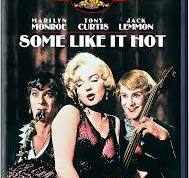 “Some Like It Hot,” the title of a 1959 comedy film starring Jack Lemmon, Tony Curtis and Marilyn Monroe (and a revamped 2022 version), should be mailed to the management of every public building in America.
“Some Like It Hot,” the title of a 1959 comedy film starring Jack Lemmon, Tony Curtis and Marilyn Monroe (and a revamped 2022 version), should be mailed to the management of every public building in America.
On second thought, they probably wouldn’t get the message – considering how dense they are in failing to realize how much harm they do by over-air-conditioning their buildings. Nothing to the upside is gained, and three factors to the downside result.
Overhead costs of running any commercial enterprise rise with higher energy use. I’ve read in the past that lowering the thermostat just two degrees significantly increases the energy used, more so than one would imagine. But managers seem oblivious to this. Why? I speculate that it’s more convenient to just pass the cost on to the customers of their products or services. But doing so can only hurt their bottom lines.

What else does it hurt? Their customer base. They are making at least some of the people in their buildings uncomfortable. In restaurants, doctor offices, government buildings – anywhere people congregate – one sees both clients and employees wearing sweaters or jackets to keep warm. That’s because people’s metabolism and blood circulation are different. So temperature comfort levels vary. Thus, choices must be made as to which people to please. Isn’t it a no-brainer to err on the side of those whose preferences redound to financial and environmental benefit?
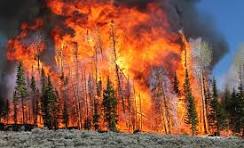
That brings up the third, and probably most important, factor: global warming caused in large part by carbon emissions from energy use. In case anyone out there remains unaware, planet Earth is dying, largely from the burning of fossil fuels. It is becoming ever more apparent, and urgent, in the climate extremes throughout the world: unbearably high temperatures, droughts, floods, forest fires, huge snowfalls, melting glaciers, tornado increases, more powerful hurricanes.
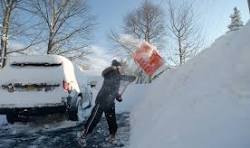
But human nature dictates that, if these calamities don’t affect us personally, we don’t get overly concerned. However, people in management positions who control building temperatures should rise above the average person’s apathetic and short-sighted responses to the warnings these calamities pose.
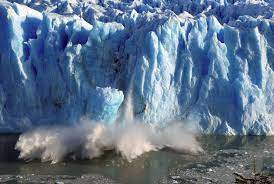
When I moved to Clearwater from Palm Beach County in September, I wasn’t set up in the kitchen to prepare my meals, so I visited the nearby Perkins Restaurant, an inexpensive pancake house. I am a former pancake connoisseur, and long ago established that Perkins had the best pancakes, beating out No. 2 IHOP and No. 3 Denny’s for flavor and texture. (In one semester of graduate school, I ate pancakes two meals daily. Pillsbury – but that was in the Pleistocene epoch, and the crown may have shifted.)
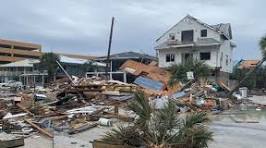
Alas, I stopped going after the first few visits. Nothing to do with the food or the service, both superior, or the location, convenient. So what was wrong? The place was so cold that, though I wore a long-sleeved shirt and jacket, my nose was cold and my fingers were less than nimble. Even worse, I couldn’t finish my pancakes before they got cold – unless I ate them before the eggs, in which case the eggs got cold.
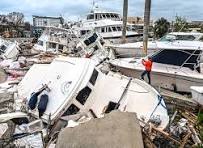
I’m picking on Perkins, but almost every public building is the same. I stopped going to see stellar jazz artists Nate Najar and Daniela Soledad two Tuesdays per month at Intermezzo Coffee & Cocktails in downtown St. Peterburg. You go out to enjoy yourself, but my nose was cold and toes uncomfortable. The place was freakin’ freezing. Maybe management figures it can sell more coffee that way. All the more so if the caffeine gives you the jitters, movement that warms you further.
Sports bars are the worst. Most of their patrons must be cold-blooded dudes, because many of them sit at the bar or tables clad in tee-shirts and shorts, seemingly oblivious to the chilly 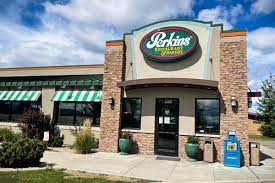 environment prevailing in almost all of these establishments.
environment prevailing in almost all of these establishments.
I live in a huge condominium complex, which has two large clubhouses, or rather, community centers with numerous rooms. One has a vast auditorium, which usually sits empty. Meanwhile, the temperature is so low as to require people with internal body regulators like mine to feel chilled.
It is all monumentally wasteful. Climate calamities are happening all around us, and we shrug. Lowering the thermostats in public buildings would not only favor a large part of the population, but accrue to the financial benefit of businesses in those buildings. For most people, it would require no sacrifice, and would increase the comfort of some. Often, wearing less clothing would be enough to create comfort.

So why aren’t business leaders doing anything to correct this situation? Worse yet, why aren’t government officials requiring that municipal, state and federal buildings have temperature settings of, say, 76 to 78 degrees Fahrenheit?
I follow the news pretty closely, and have not seen or heard any report of politicians or pundits calling for legislation to deal with thermostat settings in public buildings. Enforcement undoubtedly would be complex and difficult, but if nothing else, a discussion of the matter surely would result, concomitantly raising public consciousness and sense of urgency about the problem.
A great amount of attention is given to increasing vehicle fuel standards and developing alternate sources of energy. These are all good and productive. But public buildings consume enormous amounts of energy, and little or nothing appears to be happening on that front.
It’s time for action from our political representatives and media outlets in the absence of concern by business and industry leaders.
————-
Speaking of the cold … Amazon reviews of my legal thriller Blood on Their Hands are frozen at 61, and a short (or longer if you’re effusive) review would be warmly (groan) appreciated.

flipflop
Trump keeps complaining that the courtroom of his trial in New York is too cold. Maybe you could reach out to him for help and to commiserate.
client
Hey, maybe the Donald will realize that this is a wasteful use of energy, and combating climate change is a worthy endeavor, after all. And maybe my next book will win the Pulitzer Prize and the Nobel Prize for Literature.